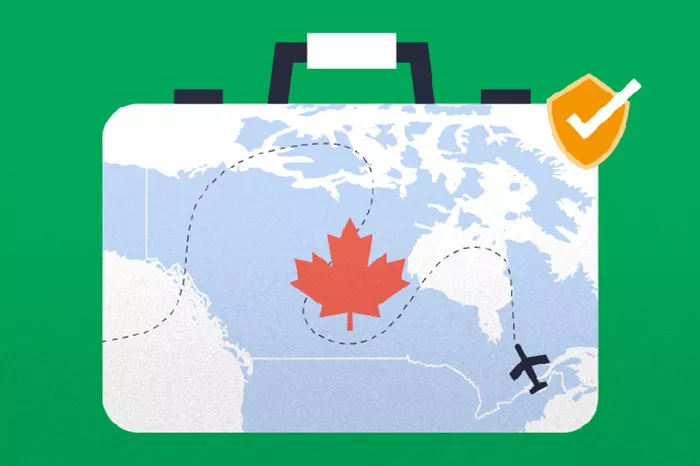Travel insurance is essential for safeguarding against unforeseen issues during your trip, such as medical emergencies, trip cancellations, or lost luggage. Aon, a leading global insurance provider, offers comprehensive travel insurance plans designed to cover a wide range of travel-related risks. If you need to file a claim with Aon Travel Insurance, understanding the process is crucial for ensuring a smooth and successful resolution. This comprehensive guide will walk you through each step of making an Aon travel insurance claim, from understanding your coverage to submitting and managing your claim.
Understanding Aon Travel Insurance
What Does Aon Travel Insurance Cover?
Aon Travel Insurance provides coverage for various scenarios, including:
Medical Emergencies: Coverage for expenses related to medical treatment if you fall ill or are injured during your trip.
Trip Cancellation: Reimbursement for non-refundable costs if you must cancel your trip due to covered reasons, such as illness or a family emergency.
Trip Interruption: Coverage for unused portions of your trip if it is interrupted for a covered reason, like a natural disaster or a sudden illness.
Lost or Delayed Baggage: Compensation for baggage that is lost, stolen, or delayed beyond a certain period.
Travel Delays: Reimbursement for additional expenses incurred due to delays, such as accommodation or food.
It is important to thoroughly review your policy to understand what is covered and any limitations or exclusions.
Types of Claims
Claims with Aon can be categorized based on the nature of the issue:
Medical Claims: For expenses related to illness or injury, including hospital stays and medical treatments.
Cancellation Claims: For reimbursement of prepaid, non-refundable trip expenses when you need to cancel your trip.
Baggage Claims: For compensation related to lost, stolen, or delayed luggage.
Travel Delay Claims: For additional costs incurred due to delays, such as extra accommodation or meals.
Each type of claim requires specific documentation and follows a different process.
Preparing to File a Claim
Review Your Policy
Before initiating a claim, take the following steps:
Understand Your Coverage: Familiarize yourself with the details of your Aon policy, including what is covered and what is excluded.
Identify Coverage Limits: Note the maximum amounts that can be claimed for different types of expenses.
Check for Exclusions: Be aware of any exclusions that may affect your claim, such as pre-existing conditions or high-risk activities.
Gather Necessary Documentation
To support your claim effectively, collect the following documents:
Medical Reports: For medical claims, obtain detailed reports and invoices from healthcare providers.
Receipts and Proofs: Keep receipts for all expenses you are claiming, such as medical bills, travel costs, or additional accommodation.
Travel Itinerary: Provide a copy of your travel itinerary and any proof of trip cancellation or interruption.
Police Reports: For claims involving theft or loss, secure a police report or similar documentation.
Contact Aon
Before submitting your claim, contact Aon’s customer service to:
Confirm the Process: Verify the claim process and any additional requirements.
Clarify Documentation: Ensure you have all the necessary documentation to support your claim.
How to File a Claim with Aon Travel Insurance
Step 1: Complete the Claim Form
Fill out the Aon claim form with the following details:
Personal Information: Provide your name, contact information, and policy number.
Claim Details: Describe the incident in detail, including dates, locations, and a clear explanation of the situation.
Supporting Documents: Attach all required documents, such as receipts, medical reports, and travel itineraries.
Accuracy is crucial to avoid delays in processing.
Step 2: Submit Your Claim
Submit your claim using one of the following methods:
Online Submission: Use Aon’s online claims portal for a streamlined submission process.
Mail Submission: Send the completed claim form and documents to the address provided by Aon.
Email Submission: Some claims can be submitted via email. Check Aon’s instructions for email submissions.
Keep copies of all documents and submissions for your records.
Step 3: Track Your Claim
Monitor the status of your claim by:
Receiving Confirmation: Aon should acknowledge receipt of your claim.
Receiving Updates: Stay informed about the progress of your claim. Aon may request additional information or documentation.
Receiving a Decision: Once Aon has reviewed your claim, they will notify you of the outcome and any reimbursement details.
What to Do If Your Claim Is Denied
Understand the Reason for Denial
If your claim is denied, review the following:
Denial Explanation: Understand the reasons provided by Aon for the denial, which may include incomplete documentation or policy exclusions.
Review Policy Details: Check if the denial aligns with the terms of your policy.
Appeal the Decision
If you believe the denial was incorrect, follow these steps to appeal:
Review Denial Letter: Carefully read the denial letter to understand the reasons.
Gather Additional Information: Collect any additional documentation or evidence that supports your case.
Submit an Appeal: Write a formal appeal letter addressing the reasons for denial and include all additional supporting documents.
Seek Assistance
If necessary, consider the following options:
Insurance Advocate: Consult with an insurance advocate or advisor for assistance with the appeals process.
Legal Assistance: In some cases, legal advice may be helpful if the claim involves complex issues or disputes.
See Also: Do I Need Travel Insurance for the Channel Islands?
Tips for a Successful Claim
Maintain Detailed Records
To facilitate a smooth claims process:
Keep All Documentation: Store all travel-related documents, communications, and receipts in an organized manner.
Document Everything: Keep detailed records of all incidents and expenses related to your claim.
Act Quickly
For efficient processing:
Report Incidents Promptly: Report any issues as soon as they occur and file your claim as quickly as possible.
Submit Claims Early: The sooner you submit your claim, the faster it can be processed.
Follow Up Regularly
To stay informed:
Check Status: Regularly check the status of your claim with Aon.
Respond Promptly: Address any requests for additional information or documentation as quickly as possible.
Conclusion
Making a claim with Aon Travel Insurance involves understanding your policy, gathering the necessary documentation, and following a structured process. By reviewing your coverage, preparing thoroughly, and submitting your claim accurately, you can navigate the claims process effectively. If you encounter any issues or have questions, Aon’s customer service is available to assist you. With proper preparation and attention to detail, you can ensure that your claim is handled efficiently and that you receive the support you need during unexpected travel disruptions.
FAQs
1. What should I do if I lose my travel insurance documents?
If you lose your travel insurance documents, the first step is to contact Aon’s customer service immediately. They can assist you in obtaining copies of your policy documents and any other necessary information. Be prepared to provide your policy number and personal details to verify your identity. You might also need to confirm your contact information to receive the documents promptly. In the meantime, review any email communications or physical documents you might have retained. Keeping a digital copy of important documents in a secure place can help avoid similar issues in the future.
2. How long does it take for Aon to process a travel insurance claim?
The time it takes for Aon to process a travel insurance claim can vary based on the complexity of the claim and the completeness of the submitted documentation. Generally, straightforward claims can be processed within a few weeks, while more complex claims may take longer. Aon will keep you informed of the progress and notify you if additional information is needed. For medical claims, additional time may be required to review detailed medical reports. To expedite the process, ensure all required documents are submitted promptly and accurately. Regularly check the status of your claim and respond to any requests for further information.
3. Can I amend my travel insurance claim after submission?
Yes, you can amend your travel insurance claim after submission if you realize that additional information or corrections are needed. Contact Aon’s customer service to inform them of the necessary changes. Provide any new or corrected information and submit additional documents if required. Aon will guide you through the process of updating your claim and ensure that your amendments are properly reviewed. It is important to keep clear records of all communications and updates related to your claim. Promptly addressing any issues or corrections can help prevent delays in the processing of your claim.
4. What happens if I don’t meet the deadline for filing a claim?
If you miss the deadline for filing a claim, your claim may be denied or delayed. Aon’s policy typically specifies a timeframe within which claims must be filed, often ranging from 30 to 180 days from the date of the incident. If you are unable to meet this deadline, contact Aon as soon as possible to explain your situation. They may consider exceptions in cases of extenuating circumstances or provide guidance on how to proceed. It is crucial to adhere to the deadlines outlined in your policy to ensure timely processing and avoid complications. Keeping track of important dates and deadlines can help manage your claims efficiently.
5. What should I do if my travel insurance claim is denied?
If your travel insurance claim is denied, carefully review the denial letter to understand the reasons for the decision. Common reasons for denial include incomplete documentation, policy exclusions, or claims that do not meet coverage criteria. You can appeal the decision by gathering any additional information or documentation that supports your case and submitting a formal appeal to Aon. Address the specific reasons for denial in your appeal and provide any new evidence that might strengthen your claim. If needed, seek advice from an insurance advocate or legal professional to assist with the appeals process. Staying proactive and detailed in your appeal can increase the chances of a favorable resolution.






















